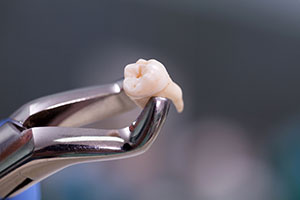
If you've recently undergone a tooth extraction, there's certain things you should and should not do. Make sure you read this aftercare guide.
Keyword(s): tooth extraction
There are several reasons why a tooth extraction is necessary. A wisdom tooth has grown in and there's no room in a patient's mouth or maybe a person needs braces and needs extra space in their mouth.
Maybe a tooth is rotted and decaying or the tooth is broken beyond repair. Whatever the reason, it's important to know about what happens both during the extraction and how to handle the tooth removal aftercare.
Not only will it help a patient feel more confident about the procedure but they will experience fewer problems when they know the proper tooth extraction care to take. Keep reading to learn the steps of tooth extraction aftercare.
What Happens During a Tooth Extraction
A dentist or oral surgeon will check out their patient's teeth to determine if they need any teeth extracted. During the procedure, the dentist will inject the patient with a local anesthetic to numb the area.
The anesthesia will prevent someone from experiencing pain but will leave the patient fully aware of their surroundings. The only thing they may expect to feel is some pulling.
For children, those with high anxiety issues or those with difficult extractions, a stronger general anesthetic is often used. This type of anesthesia will put a patient to sleep during the procedure.
The Procedure
A device called an elevator is used in simple extractions. It rocks the tooth back and forth until it becomes loose enough for the dentist to remove the tooth using dental forceps.
Surgical extraction may be required for molars or impacted teeth. In these cases, the dentist makes an incision cutting away gum and bone tissue that's covering the tooth. They'll then use forceps to rock the tooth back and forth until it's removed.
Once the tooth is removed, a blood clot forms in the socket. The dentist then packs it with gauze to stop the bleeding. Depending on the circumstances, a few stitches may be necessary.
Tooth Extraction Aftercare
Do not attempt heavy lifting or other strenuous activities after an extraction. Getting plenty of rest is best but make sure to elevate the head when lying on a pillow.
Allow the tooth to clot so it heals as quickly as possible. Keep the gauze in place by lightly biting down on it for at least one hour after the extraction. Do not chew on the gauze or it may cause a delay in healing. Change the gauze every 30 minutes.
You can also try putting a wet tea bag on the site. The tannic acids in black tea aids in clotting.
Ice packs are good to reduce swelling. Apply the ice pack only during the same day as the procedure. Apply for 15 minutes on and then 15 minutes off for one or two hours. There are no benefits to applying an ice pack after 24 hours have passed.
What to Avoid Doing
Do not smoke, sip, or suck anything after an extraction. Avoid hot drinks, spicy foods, hard veggies, and sugary drinks. Soft foods are best.
Take any medicines as prescribed. Ibuprofen is okay but taking aspirin is not. Aspirin is a blood thinner and can prevent healing.
Rinse with a warm saline solution. This cleans and helps heal and clean the area.
And do not poke or play with the area until it's healed.
Request an Appointment
A tooth extraction should always be performed by a dentist or oral surgeon. Our office can help.
Click here to schedule an appointment.